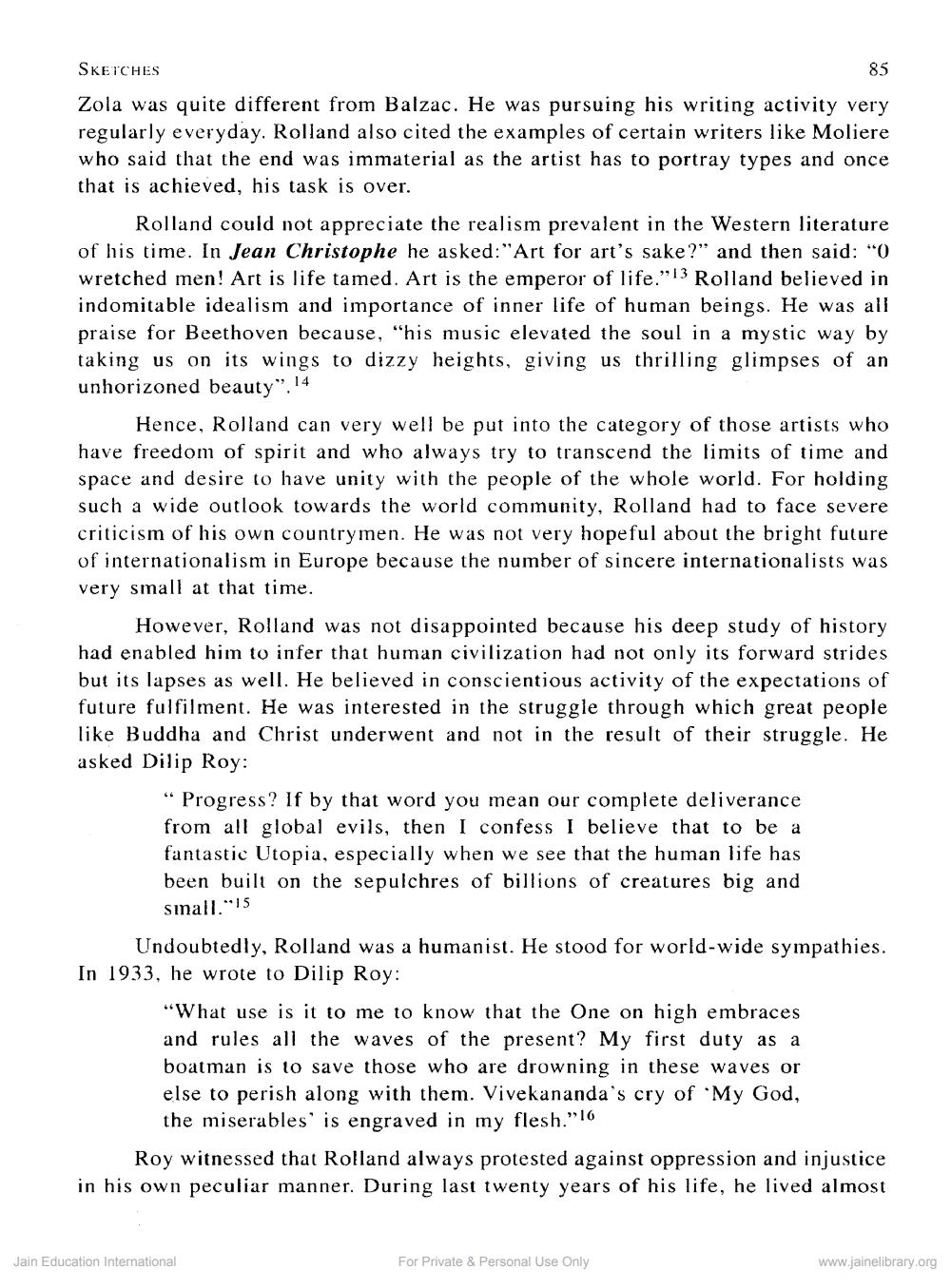________________
SKETCHES
85 Zola was quite different from Balzac. He was pursuing his writing activity very regularly everyday. Rolland also cited the examples of certain writers like Moliere who said that the end was immaterial as the artist has to portray types and once that is achieved, his task is over.
Rolland could not appreciate the realism prevalent in the Western literature of his time. In Jean Christophe he asked:"Art for art's sake?" and then said: "O wretched men! Art is life tamed. Art is the emperor of life."13 Rolland believed in indomitable idealism and importance of inner life of human beings. He was all praise for Beethoven because, "his music elevated the soul in a mystic way by taking us on its wings to dizzy heights, giving us thrilling glimpses of an unhorizoned beauty". 14
Hence, Rolland can very well be put into the category of those artists who have freedom of spirit and who always try to transcend the limits of time and space and desire to have unity with the people of the whole world. For holding such a wide outlook towards the world community, Rolland had to face severe criticism of his own countrymen. He was not very hopeful about the bright future of internationalism in Europe because the number of sincere internationalists was very small at that time.
However, Rolland was not disappointed because his deep study of history had enabled him to infer that human civilization had not only its forward strides but its lapses as well. He believed in conscientious activity of the expectations of future fulfilment. He was interested in the struggle through which great people like Buddha and Christ underwent and not in the result of their struggle. He asked Dilip Roy:
" Progress? If by that word you mean our complete deliverance from all global evils, then I confess I believe that to be a fantastic Utopia, especially when we see that the human life has been built on the sepulchres of billions of creatures big and
sinall."15
Undoubtedly, Rolland was a humanist. He stood for world-wide sympathies. In 1933, he wrote to Dilip Roy:
"What use is it to me to know that the One on high embraces and rules all the waves of the present? My first duty as a boatman is to save those who are drowning in these waves or else to perish along with them. Vivekananda's cry of My God, the miserables' is engraved in my flesh."16
Roy witnessed that Rolland always protested against oppression and injustice in his own peculiar manner. During last twenty years of his life, he lived almost
Jain Education International
For Private & Personal Use Only
www.jainelibrary.org




